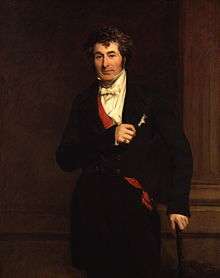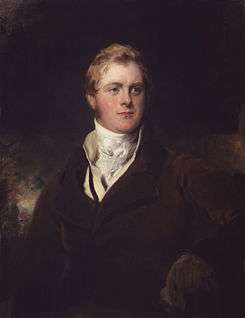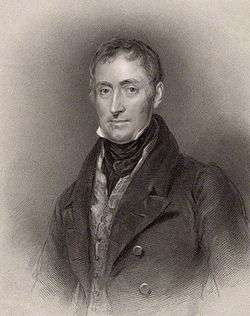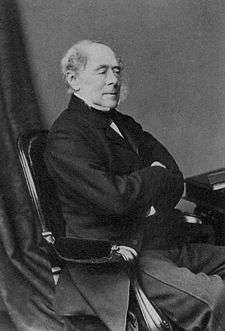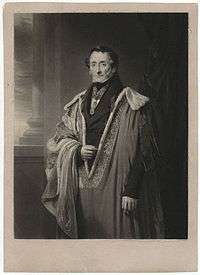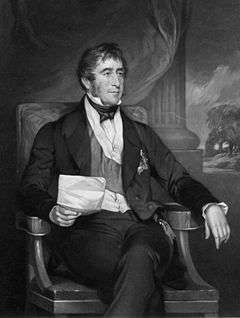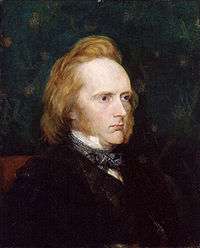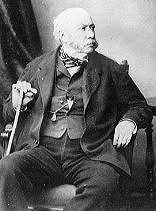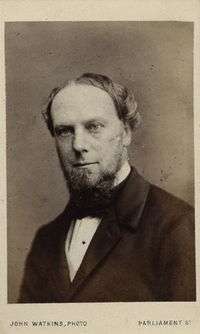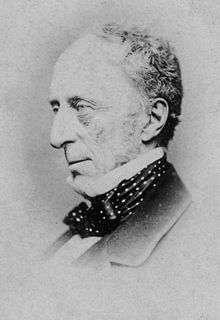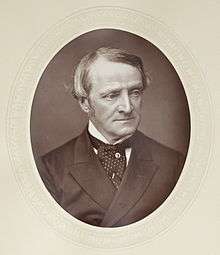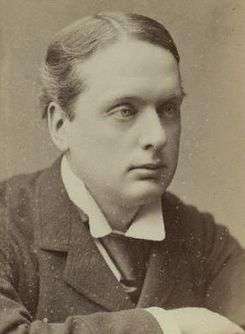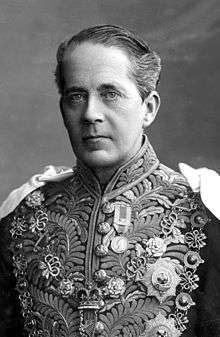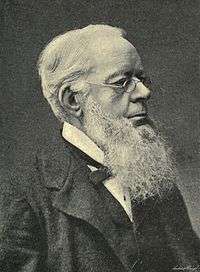Lord Privy Seal
| Lord Keeper of the Privy Seal | |
|---|---|
|
Royal Arms used by Her Majesty's Government | |
| Style | The Right Honourable |
| Appointer |
Monarch of the United Kingdom on advice of the Prime Minister |
| Inaugural holder | William Melton |
| Formation | 1307 |
.svg.png) |
| This article is part of a series on the politics and government of the United Kingdom |
|
|
|
|
The Lord Privy Seal (or, more formally, the Lord Keeper of the Privy Seal) is the fifth of the Great Officers of State in the United Kingdom, ranking beneath the Lord President of the Council and above the Lord Great Chamberlain. The office is one of the traditional sinecure offices of state. Originally, its holder was responsible for the monarch's personal (privy) seal (as opposed to the Great Seal of the Realm, which is in the care of the Lord Chancellor). Today, the holder of the office is invariably given a seat in the Cabinet of the United Kingdom.
Though one of the oldest offices in government anywhere, it has no particular function today because the use of a privy seal has been obsolete for centuries; thus the office has generally been used as a kind of Minister without Portfolio. Since the premiership of Clement Attlee, the position of Lord Privy Seal has frequently been combined with that of Leader of the House of Lords or Leader of the House of Commons. The office of Lord Privy Seal, unlike those of Leader of the Lords or Commons, is eligible for a ministerial salary under the Ministerial and other Salaries Act 1975.[1] The office does not confer membership of the House of Lords, leading to Ernest Bevin's remark on holding this office that he was "neither a Lord, nor a Privy, nor a Seal".[2]
During the reign of Edward I, prior to 1307, the Privy Seal was kept by the Keeper of the Wardrobe.[3] The Lord Privy Seal was the president of the Court of Requests during its existence.
English Lords Privy Seal, 1307–1707
14th century
- William Melton (1307–1312)
- Roger Northburgh (1312–1316)
- Thomas Charlton (1316–1320) (Archdeacon of Northumberland)
- Robert Baldock (1320–1323)
- Robert Wodehouse (1323)
- Robert Ayleston (1323–1324)
- William Ayermin (1324–1325)
- Henry Cliff (1325)
- William Herlaston (1325–1326)
- Robert Wyvil (1326–1327)
- Richard Airmyn (1327–1328)
- Adam Lymbergh (1328–1329) (Chancellor of Ireland)
- Richard Bury, (1329–1334) (Bishop of Durham from 1333)
- Robert Ayleston (1334)
- Robert Tawton (1334–1335) (Archdeacon of Durham)
- William de la Zouch (1335–1337)
- Richard Bintworth,(1337–1338) (Bishop of London)
- William Kilsby (1338–1342) (Treasurer of the Chamber)
- John de Ufford, 1342–1344) (Dean of Lincoln then Archbishop of Canterbury)
- Thomas Hatfield, (1344–1345) Bishop of Durham
- John Thoresby, (1345–1347) (Bishop of St Davids and Archbishop of York)
- Simon Islip, (1347–1350) (Archbishop of Canterbury)
- Michael Northburgh (1350–1354) (Archdeacon of Suffolk)
- Thomas Bramber (1354–1355) (Treasurer of the Chamber)
- John Winwick (1355–1360)
- John Buckingham, (1360–1363) Dean of Lichfield and Bishop of Lincoln)
- William of Wykeham (1363–1367) (Treasurer of the Chamber and Archdeacon of Lincoln)
- Peter Lacy (1367–1371)
- Nicholas Carew (1371–1377)
- John Fordham (1377–1381) (Dean of Wells then Bishop of Durham)
- William Dighton (1381–1382)
- Walter Skirclaw, (1382–1386) (Bishop of Coventry and Lichfield)
- John Waltham, (1386–1389) (Bishop of Salisbury)
- Edmund Stafford, (1389–1396) (Bishop of Exeter)
- Guy Mone (1396–1397) (Bishop of St Davids)
- Richard Clifford (1397–1401) (Keeper of the Great Wardrobe, later Bishop of London)
15th century
- Thomas Langley, (1401–1405) (Dean of York)
- Nicholas Bubwith, (1405–1406) (Archdeacon of Dorset then Bishop of London)
- John Prophet, (1406–1415) (Dean of York)
- John Wakering, (1415–1416) (Archdeacon of Canterbury then Bishop of Norwich)
- Henry Ware, (1416–1418) (Bishop of Chichester)
- John Kemp, (1418–1421) (Archdeacon of Durham then Bishop of Rochester)
- John Stafford, (1421–1422) (Dean of St Martins le Grand)
- William Alnwick, (1422–1432) (Archdeacon of Salisbury then Bishop of Norwich)
- William Lyndwood, (1432–1443) (Archdeacon of Oxford then Bishop of St David's)
- Thomas Beckington, (1443–1444) (Bishop of Bath and Wells)
- Adam Moleyns, (1444–1450) (Dean of Salisbury then Bishop of Chichester)
- Andrew Holes, (1450–1452) (Archdeacon of York)
- Thomas Lisieux, (1452–1456) (Dean of St Paul's)
- Laurence Booth, (1456–1460) (Dean of St Paul's then Bishop of Durham)
- Robert Stillington, (1460–1467) (Archdeacon of Taunton then Bishop of Bath and Wells)
- Thomas Rotheram, (1467–1470) (Bishop of Rochester)
- John Hales, (1470–1471) (Bishop of Coventry and Lichfield)
- Thomas Rotheram, (1471–1474) (Bishop of Rochester)
- John Russell, (1474–1483) (Bishop of Rochester, later Bishop of Lincoln)
- John Gunthorpe, (1483–1485) (Dean of the Chapel Royal and Dean of Wells)
- Peter Courtenay, (1485–1487) (Bishop of Exeter)
- Richard Foxe, (1487–1516) (Bishop of Exeter, later Bishop of Bath and Wells, Bishop of Durham and Bishop of Winchester)
16th century
- Thomas Ruthall, (1516–1523) (Bishop of Durham)
- Henry Marney, 1st Baron Marney (1523)
- Cuthbert Tunstall, (1523–1530) (Bishop of London)
- Thomas Boleyn, 1st Earl of Wiltshire (1530–1536)
- Thomas Cromwell, 1st Earl of Essex (1536–1540)
- William FitzWilliam, 1st Earl of Southampton (1540–1542)
- John Russell, 1st Earl of Bedford (1542–1555)
- William Paget, 1st Baron Paget (1555–1558)
- Nicholas Bacon (1558–1571)
- William Cecil, 1st Baron Burghley (1571–1572)
- William Howard, 1st Baron Howard of Effingham (1572–1573)
- Thomas Smith (1573–1576)
- Francis Walsingham (1576–1590)
- William Cecil, 1st Baron Burghley (1590–1598)
- Robert Cecil, 1st Earl of Salisbury (1598–1608)
17th century
- Henry Howard, 1st Earl of Northampton (1608–1614)
- Robert Carr, 1st Earl of Somerset (1614–1616)
- Edward Somerset, 4th Earl of Worcester (1616–1625)
- John Coke (1625–1628)
- Robert Naunton (1628)
- Henry Montagu, 1st Earl of Manchester (1628–1642)
- Lucius Cary, 2nd Viscount Falkland (1643)
- Edward Nicholas (1643–1644)
- Henry Bourchier, 5th Earl of Bath (1644–1654)
- John Robartes, 2nd Baron Robartes (1661–1673)
- Commissioners during Robartes' absence as Lord Lieutenant of Ireland, 1669
- Edward Dering, 2nd Baronet
- Thomas Strickland
- Robert Milward
- Arthur Annesley, 1st Earl of Anglesey (1673–1682)
- George Savile, 1st Marquess of Halifax (1682–1685)
- Henry Hyde, 2nd Earl of Clarendon (1685–1687)
- Commissioners during Clarendon's absence in Ireland, 1685
- Thomas Livingston, 1st Viscount Teviot
- Robert Phillips
- John Evelyn
- Henry Arundell, 3rd Baron Arundell of Wardour (1687–1688)
- George Savile, 1st Marquess of Halifax (1689–1690)
- Commissioners 1690–1692
- William Cheney
- John Knatchbull, 2nd Baronet
- William Pulteney
- Thomas Herbert, 8th Earl of Pembroke (1692–1699)
- Commissioners during Pembroke's absence as Lord Lieutenant of Ireland, 1697
- John Lowther, 1st Viscount Lonsdale (1699–1700)
18th century
- Ford Grey, 1st Earl of Tankerville (1700–1701)
- Commissioners 1701–1702
- Edward Southwell
- Christopher Musgrave
- James Vernon
- John Sheffield, 1st Duke of Buckingham and Normanby (1702–1705)
- John Holles, 1st Duke of Newcastle (1705–1707)
British Lords Privy Seal, 1707–present
18th century
- John Holles, 1st Duke of Newcastle (1707–1711)
- John Robinson, Bishop of Bristol (1711–1713)
- Commissioners during Robinson's absence at the Treaty of Utrecht, 1711
- George Beaumont, 4th Baronet
- Robert Byerley
- Edward Nicholas
- William Legge, 1st Earl of Dartmouth (1713–1714)
- Thomas Wharton, 1st Marquess of Wharton (1714–1715)
- Commissioners 1715
- Edward Southwell
- Christopher Musgrave, 5th Baronet
- Andrew Charleton
- Charles Spencer, 3rd Earl of Sunderland (1715–1716)
- Commissioners during Sunderland's absence at Aix-la-Chapelle, 1716[4]
- Edward Southwell
- James Vernon[5] or James Vernon[6]
- Andrew Charleton
- Evelyn Pierrepont, 1st Duke of Kingston-upon-Hull (1716–1718)
- Henry Grey, 1st Duke of Kent (1718–1719)
- Evelyn Pierrepont, 1st Duke of Kingston-upon-Hull (1720–1726)
- Thomas Trevor, 1st Baron Trevor (1726–1730)
- Spencer Compton, 1st Earl of Wilmington (1730–1731)
- In Commission 1731
- William Cavendish, 3rd Duke of Devonshire (1731–1733)
- Henry Lowther, 3rd Viscount Lonsdale (1733–1735)
- Francis Godolphin, 2nd Earl of Godolphin (1735–1740)
- John Hervey, 2nd Baron Hervey (1740–1742)
- John Leveson-Gower, 2nd Baron Gower (1742–1743)
- George Cholmondeley, 3rd Earl of Cholmondeley (1743–1744)
- John Leveson-Gower, 1st Earl Gower, 2nd Baron Gower (1744–1755)
- Charles Spencer, 3rd Duke of Marlborough (1755)
- Granville Leveson-Gower, 2nd Earl Gower (1755–1757)
- Richard Grenville-Temple, 2nd Earl Temple (1757–1761)
- In Commission 1761
- John Russell, 4th Duke of Bedford (1761–1763)
- George Spencer, 4th Duke of Marlborough (1763–1765)
- Thomas Pelham-Holles, 1st Duke of Newcastle (1765–1766)
- William Pitt, 1st Earl of Chatham (1766–1768)
- Commissioners 1768
- Richard Sutton
- William Blair
- William Fraser
- William Pitt, 1st Earl of Chatham (1768)
- George Hervey, 2nd Earl of Bristol (1768–1770)
- George Montagu-Dunk, 2nd Earl of Halifax (1770–1771)
- Henry Howard, 12th Earl of Suffolk (1771)
- Augustus FitzRoy, 3rd Duke of Grafton (1771–1775)
- William Legge, 2nd Earl of Dartmouth (1775–1782)
- Augustus FitzRoy, 3rd Duke of Grafton (1782–1783)
- Frederick Howard, 5th Earl of Carlisle (1783)
- Charles Manners, 4th Duke of Rutland (1783–1784)
- Commissioners 1784
- William Fraser
- Stephen Cotterell
- Evan Nepean
- Granville Leveson-Gower, 1st Marquess of Stafford (1784–1794)
- George Spencer, 2nd Earl Spencer (1794)
- John Pitt, 2nd Earl of Chatham (1794–1798)
- John Fane, 10th Earl of Westmorland (1798-1806)
19th century
Edwardian and war-time
| Name | Portrait | Concurrent title(s) | Tenure | Political party | Prime Minister | |||
|---|---|---|---|---|---|---|---|---|
| Robert Gascoyne-Cecil, 3rd Marquess of Salisbury | 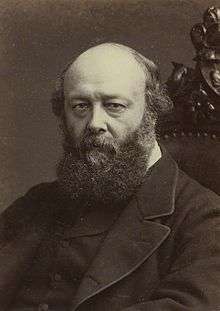 |
Prime Minister Leader of the House of Lords |
12 November 1900 – July 1902 | Conservative | Himself (Coalition) | |||
| Arthur Balfour |  |
Prime Minister Leader of the House of Commons |
14 July 1902 – October 1903 | Arthur Balfour (Coalition) | ||||
| James Gascoyne-Cecil, 4th Marquess of Salisbury |  |
President of the Board of Trade (from 14 March 1905) | 17 October 1903 – December 1905 | |||||
| George Robinson, 1st Marquess of Ripon | 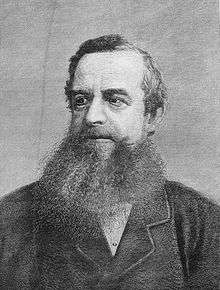 |
Leader of the House of Lords (until April 1908) | 10 December 1905 – October 1908 | Liberal | Henry Campbell-Bannerman | |||
| H. H. Asquith | ||||||||
| Robert Crewe-Milnes, 1st Earl of Crewe (created 1st Marquess of Crewe, 3 July 1911) |
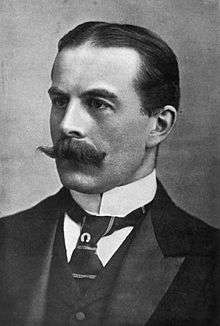 |
Leader of the House of Lords Colonial Secretary (until November 1910) India Secretary (3 November 1910 – 7 March 1911; from 25 May 1911) |
9 October 1908 – October 1911 | |||||
| Charles Wynn-Carington, 1st Earl Carrington |  |
23 October 1911 – February 1912 | ||||||
| Robert Crewe-Milnes, 1st Marquess of Crewe |  |
Leader of the House of Lords India Secretary |
13 February 1912 – May 1915 | |||||
| George Curzon, 1st Earl Curzon of Kedleston | 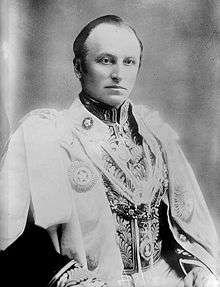 |
President of the Air Board (from May 1916) | 25 May 1915 – December 1916 | Conservative | H. H. Asquith (War coalition) | |||
| David Lindsay, 27th Earl of Crawford | |
15 December 1916 – January 1919 | David Lloyd George (Coalition) | |||||
| Bonar Law | 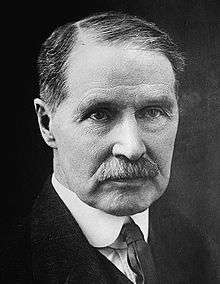 |
Leader of the House of Commons | 10 January 1919 – March 1921 | |||||
| Austen Chamberlain |  |
23 March 1921 – October 1922 | ||||||
| vacant | October 1922 – May 1923 | Bonar Law | ||||||
| Lord Robert Cecil (created 1st Viscount Cecil of Chelwood, 28 December 1923) |
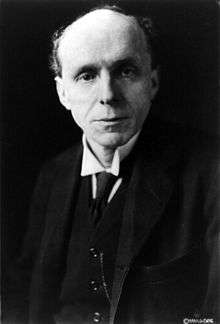 |
28 May 1923 – January 1924 | Stanley Baldwin | |||||
| J. R. Clynes | 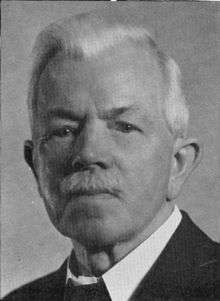 |
Deputy Leader of the House of Commons | 22 January – November 1924 | Labour | Ramsay MacDonald | |||
| James Gascoyne-Cecil, 4th Marquess of Salisbury |  |
Leader of the House of Lords (from 27 April 1925) | 6 November 1924 – June 1929 | Conservative | Stanley Baldwin | |||
| Jimmy Thomas | 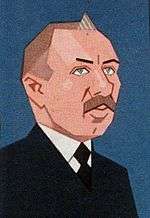 |
responsibility for employment | 7 June 1929 – June 1930 | Labour | Ramsay MacDonald | |||
| Vernon Hartshorn | 5 June 1930 – March 1931 | |||||||
| Tom Johnston | 24 March – August 1931 | |||||||
| William Peel, 1st Earl Peel | 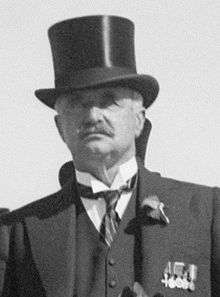 |
August – November 1931 | Conservative | Ramsay MacDonald (1st Nat. coalition) | ||||
| Philip Snowden (created 1st Viscount Snowden, 26 November 1931) |
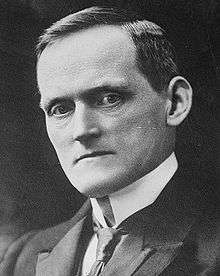 |
5 November 1931 – September 1932 | National Labour | Ramsay MacDonald (2nd Nat. coalition) | ||||
| Stanley Baldwin |  |
29 September 1932 – December 1933 | Conservative | |||||
| Anthony Eden |  |
31 December 1933 – June 1935 | ||||||
| Charles Vane-Tempest-Stewart, 7th Marquess of Londonderry | _Vane-Tempest-Stewart%2C_7th_Marquess_of_Londonderry.jpg) |
Leader of the House of Lords | 7 June – November 1935 | Stanley Baldwin (3rd Nat. coalition) | ||||
| Edward Wood, 3rd Viscount Halifax |  |
22 November 1935 – May 1937 | ||||||
| Herbrand Sackville, 9th Earl De La Warr | 28 May 1937 – October 1938 | National Labour | Neville Chamberlain (4th Nat. coalition) | |||||
| John Anderson | 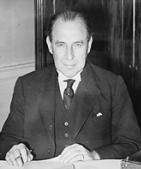 |
31 October 1938 – September 1939 | National | |||||
| Samuel Hoare | 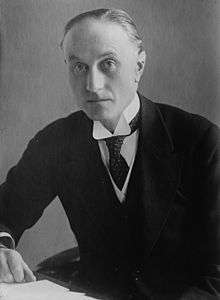 |
3 September 1939 – April 1940 | Conservative | Neville Chamberlain (War coalition) | ||||
| Kingsley Wood | 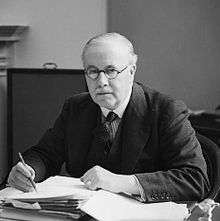 |
3 April – May 1940 | ||||||
| Clement Attlee |  |
Deputy Leader of the House of Commons | 11 May 1940 – February 1942 | Labour | Winston Churchill (War coalition) | |||
| Stafford Cripps | 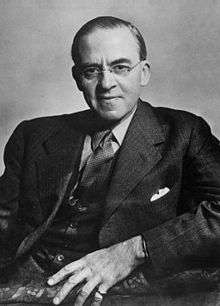 |
Leader of the House of Commons | 19 February – November 1942 | |||||
| Robert Gascoyne-Cecil, Viscount Cranborne | 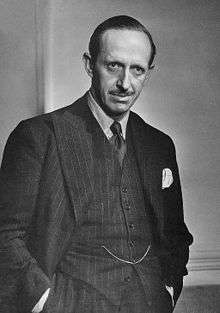 |
Leader of the House of Lords | 22 November 1942 – September 1943 | Conservative | ||||
| Max Aitken, 1st Baron Beaverbrook | 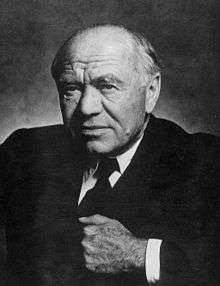 |
24 September 1943 – July 1945 | ||||||
| Winston Churchill (Caretaker coalition) | ||||||||
Post-War
| Name | Portrait | Concurrent title(s) | Tenure | Political party | Prime Minister | |||
|---|---|---|---|---|---|---|---|---|
| Arthur Greenwood | 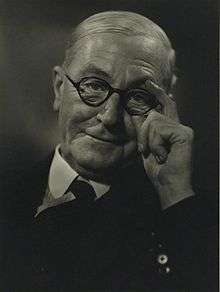 |
Paymaster General (9 July 1946 – 5 March 1947) | 27 July 1945 – 17 April 1947 | Labour | Clement Attlee | |||
| Philip Inman, 1st Baron Inman | 17 April – 7 October 1947 | |||||||
| Christopher Addison, 1st Viscount Addison |  |
Leader of the House of Lords Paymaster General (2 July 1948 – 1 April 1949) |
7 October 1947 – 9 March 1951 | |||||
| Ernest Bevin |  |
9 March – 14 April 1951 | ||||||
| Richard Stokes | Minister of Materials (from 6 July) | 26 April – October 1951 | ||||||
| Robert Gascoyne-Cecil, 5th Marquess of Salisbury |  |
Leader of the House of Lords Secretary of State for Commonwealth Relations (from 12 March 1952) |
28 October 1951 – 7 May 1952 | Conservative | Winston Churchill | |||
| Harry Crookshank | 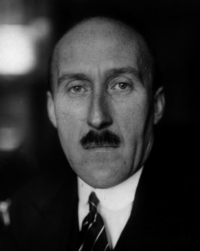 |
Leader of the House of Commons | 7 May 1952 – 20 December 1955 | |||||
| Anthony Eden | ||||||||
| R. A. Butler | 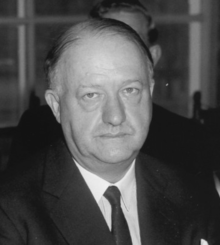 |
Leader of the House of Commons Home Secretary (from 13 January 1957) |
20 December 1955 – October 1959 | |||||
| Harold Macmillan | ||||||||
| Quintin Hogg, 2nd Viscount Hailsham |  |
Minister of Science | 14 October 1959 – July 1960 | |||||
| Edward Heath | |
27 July 1960 – October 1963 | ||||||
| Selwyn Lloyd |  |
Leader of the House of Commons | 20 October 1963 – October 1964 | Alec Douglas-Home | ||||
| Frank Pakenham, 7th Earl of Longford | 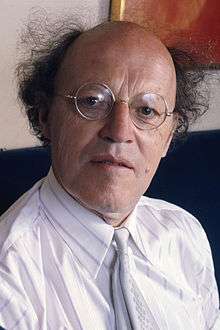 |
Leader of the House of Lords | 18 October 1964 – December 1965 | Labour | Harold Wilson | |||
| Sir Frank Soskice | 23 December 1965 – April 1966 | |||||||
| Frank Pakenham, 7th Earl of Longford |  |
Leader of the House of Lords | 6 April 1966 – January 1968 | |||||
| Edward Shackleton, Baron Shackleton | 16 January – April 1968 | |||||||
| Fred Peart | 6 April – October 1968 | |||||||
| Edward Shackleton, Baron Shackleton | Leader of the House of Lords | 18 October 1968 – June 1970 | ||||||
| George Jellicoe, 2nd Earl Jellicoe | 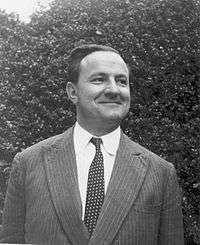 |
20 June 1970 – May/June 1973 | Conservative | Edward Heath | ||||
| David Hennessy, 3rd Baron Windlesham | 5 June 1973 – March 1974 | |||||||
| Malcolm Shepherd, 2nd Baron Shepherd | 7 March 1974 – September 1976 | Labour | Harold Wilson | |||||
| James Callaghan | ||||||||
| Fred Peart (created Baron Peart, 23 September 1976) |
10 September 1976 – May 1979 | |||||||
| Sir Ian Gilmour, Bt. | 5 May 1979 – September 1981 | Conservative | Margaret Thatcher | |||||
| Humphrey Atkins | 14 September 1981 – April 1982 | |||||||
| Janet Young, Baroness Young | Leader of the House of Lords | 6 April 1982 – June 1983 | ||||||
| John Biffen | Leader of the House of Commons | 11 June 1983 – June 1987 | ||||||
| John Wakeham | 13 June 1987 – 10 January 1988 | |||||||
| John Ganzoni, 2nd Baron Belstead | Leader of the House of Lords | 10 January 1988 – 28 November 1990 | ||||||
| David Waddington (created Baron Waddington, 4 December 1990) |
28 November 1990 – 11 April 1992 | |||||||
| John Wakeham (created Baron Wakeham, 24 April 1992) |
11 April 1992 – 20 July 1994 | Conservative | John Major | |||||
| Robert Gascoyne-Cecil, Viscount Cranborne | |
20 July 1994 – 2 May 1997 | ||||||
| Ivor Richard, Baron Richard | 2 May 1997 – 27 July 1998 | Labour | Tony Blair | |||||
| Margaret Jay, Baroness Jay of Paddington | 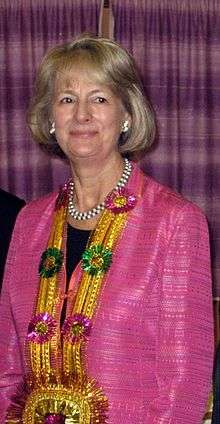 |
27 July 1998 – 8 June 2001 | ||||||
21st century
| Name | Portrait | Concurrent title(s) | Tenure | Political party | Prime Minister | |||
|---|---|---|---|---|---|---|---|---|
| Gareth Williams, Baron Williams of Mostyn | Leader of the House of Lords | 8 June 2001 – 13 June 2003 | Labour | Tony Blair | ||||
| Peter Hain | 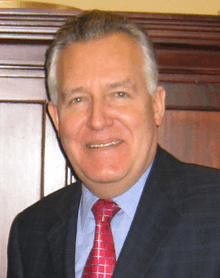 |
Leader of the House of Commons | 13 June 2003 – 6 May 2005 | Labour | ||||
| Geoff Hoon | 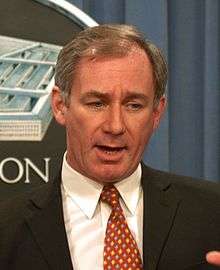 |
6 May 2005 – 5 May 2006 | Labour | |||||
| Jack Straw |  |
5 May 2006 – 27 June 2007 | Labour | |||||
| Harriet Harman |  |
Leader of the House of Commons & Minister for Women and Equality |
28 June 2007 – 11 May 2010 | Labour | Gordon Brown | |||
| Sir George Young, 6th Baronet | 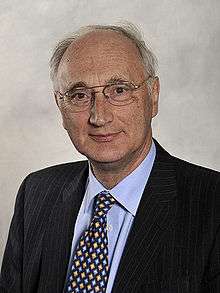 |
Leader of the House of Commons | 12 May 2010 – 4 September 2012 | Conservative | David Cameron (Coalition) | |||
| Andrew Lansley |  |
4 September 2012 – 14 July 2014 | Conservative | |||||
| Tina Stowell, Baroness Stowell of Beeston | 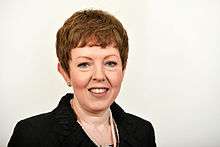 |
Leader of the House of Lords | 15 July 2014 – 14 July 2016 | Conservative | ||||
| David Cameron (II) | ||||||||
| Natalie Evans, Baroness Evans of Bowes Park | |
14 July 2016 – present | Conservative | Theresa May | ||||
Other countries
- Keeper of the seals of France
- Lord Keeper of the Privy Seal of Japan
- Keeper of the Rulers' Seal of Malaysia
See also
- Keeper of the seals
- Keeper of the Privy Seal of Scotland
- Lord Keeper of the Great Seal
- Lord Privy Seal (term)
References
- ↑ http://www.legislation.gov.uk/ukpga/1975/27
- ↑ Francis Beckett, Clem Attlee (London: Richard Cohen Books, 1997), p. 285
- ↑ Sayers, Jane. "The English Royal Chancery" (PDF). Retrieved 3 January 2012.
- ↑ The London Gazette: no. 5463. p. 1. 25–28 August 1716.
- ↑ VERNON, James II (1677–1756), of Westminster, Mdx. at The History of Parliament Online. Accessed 14 June 2014.
- ↑ VERNON, James (1646–1727), of Frith Street, Westminster. at The History of Parliament Online. Accessed 14 June 2014.
- Sergeant, John (2002). Give me ten seconds. Pan Books. ISBN 0-330-48490-7.
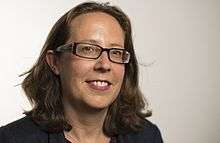
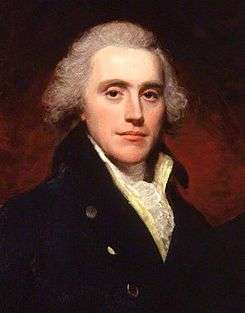
.jpg)
_after_George_Romney_of_John_Fane%2C_10th_Earl_of_Westmorland%2C_1796.jpg)

